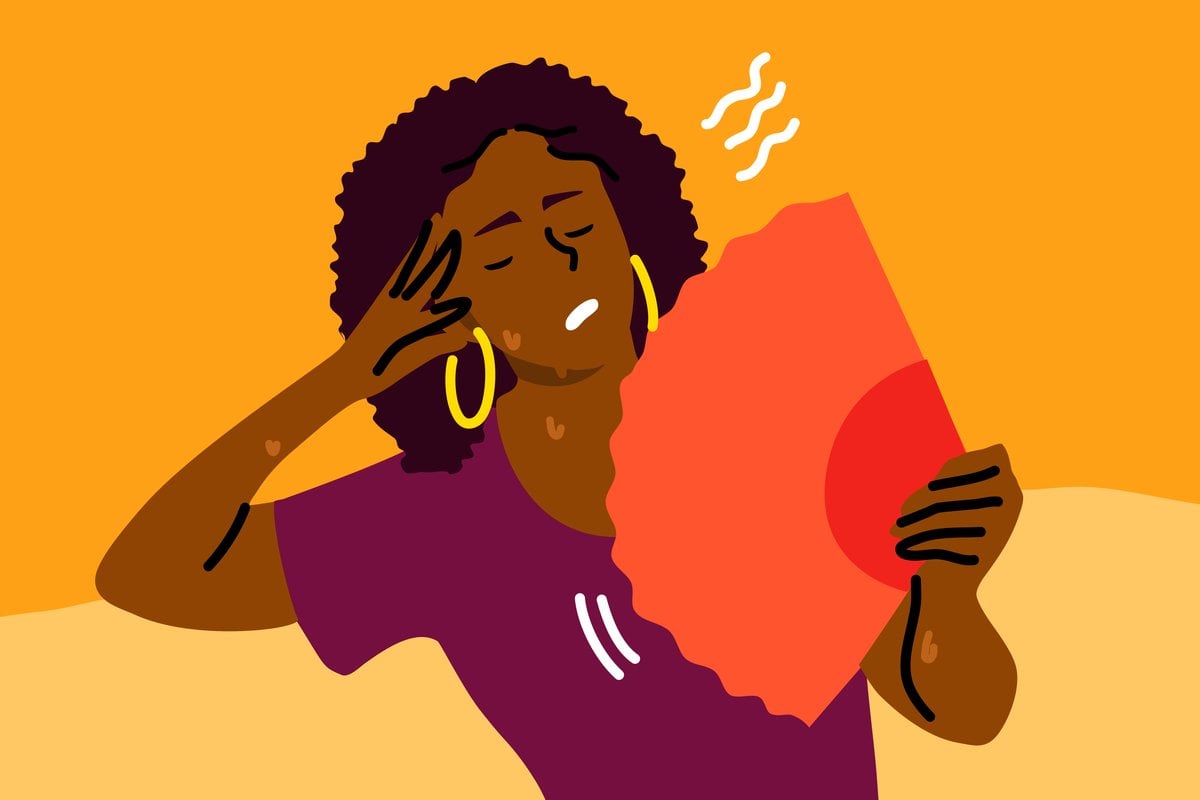
Even in the world of medicine and science, there are still a lot of unknowns around menopause and perimenopause, and that means it’s a bit of a confusing time for many of us.
We’ve got questions and it’s not always easy to get answers!
Mamamia spoke to Dr Linda Dear, a GP and menopause specialist, to clear some of them up.
Side note: The Very Peri audio series is your all-in-one survival guide for getting through perimenopause. With 10 topics covering everything from science and symptoms to solutions and support. Everything you need to know to take on peri with confidence. Listen Now.
1. Doesn’t menopause happen after 50?
Menopause is a transition you often don’t realise you’re in until it’s over. You’re officially postmenopausal when your periods have stopped for a year. 51 is the average age that happens, but it’s actually completely normal to hit menopause any time between 45 and 58. So if your doctor says you’re too young at 47, get a second opinion!
Five per cent of women will go through menopause between 40 and 45. And for 1-2 per cent of women, it will happen even younger, called premature menopause or primary ovarian insufficiency (POI).
But there’s another stage too where your hormones are all over the place.
Perimenopause, which varies in symptoms from mild to severe, can happen for 2-10 years before the estrogen drop of menopause even starts.
“Perimenopause is the life phase no one tells you about,” says Linda. It often starts in your 40s or even 30s and typically lasts around four years.


Top Comments